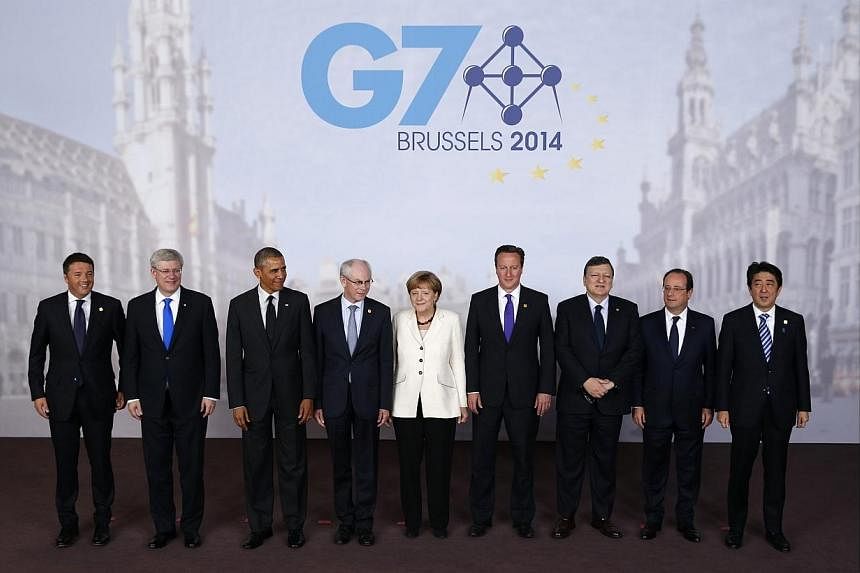BRUSSELS (AFP) - G7 leaders will warn on Thursday, in a clear rebuke to Russia, that manipulating energy supplies to intimidate one's neighbours is unacceptable and that they need to diversify their energy systems to avoid getting blackmailed.
"The use of energy supplies as a means of political coercion or as a threat to security is unacceptable," a draft G7 summit statement seen by AFP said.
Russia supplies about 30 percent of Europe's gas, with about half of that transiting Ukraine.
As the Ukraine crisis has deepened, Russian state-controlled giant Gazprom has doubled gas prices and demanded billions in back payments from cash-strapped Kiev, threatening to turn off the taps if it does not get its money.
Trying to avoid a repeat of the 2006 and 2009 crises when Gazprom cut supplies, the European Union has brought Ukraine and Russia together for talks, with officials due to report back shortly on a possible deal.
The G7 - Britain, France, Germany, Italy, Canada, Japan and the United States - said they would do more to diversify supplies and resources to ensure future energy security.
"The crisis in Ukraine makes plain that the energy security must be at the centre of our collective agenda and requires a step change to our approach to diversifying energy supplies and modernising our energy infrastructure," the draft statement said.
The G7 will also urge the International Energy Agency, as well as the EU, to propose new ways to help prevent energy wars.

